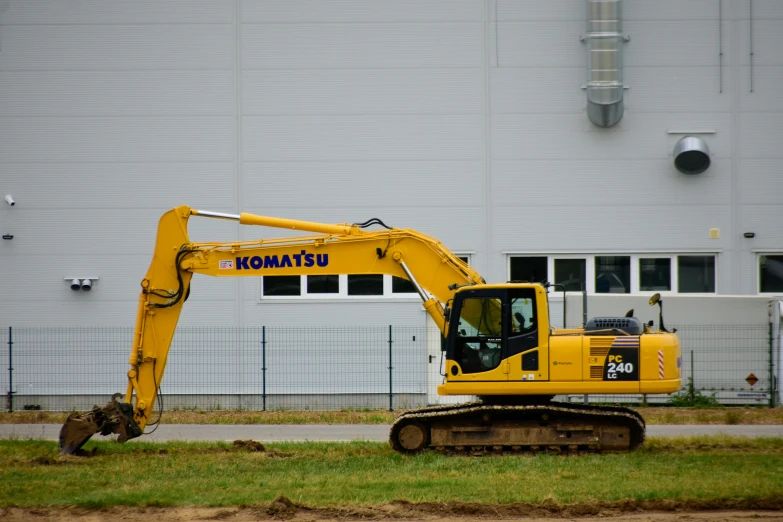1. Introduction
Komatsu excavators are renowned worldwide for their exceptional performance and innovative design. To ensure optimal performance and extend service life, regular maintenance and care are essential. This guide combines Komatsu’s design features with detailed maintenance and care instructions, helping users effectively manage their equipment and enhance work efficiency.
2. Komatsu Excavator Design Features
2.1 Efficient Hydraulic System
The hydraulic system is one of the core strengths of Komatsu excavators.
- Powerful Excavation Capability: This system can easily handle various soil types, adapting to different construction needs. To maintain high efficiency, users should regularly check hydraulic oil levels and quality to ensure proper operation.
- Quick Response and Precise Control: Komatsu’s hydraulic system is designed for quick response, allowing for flexible operation. During maintenance, keep the hydraulic system clean and regularly change hydraulic oil and filters to prevent wear from contaminants.
2.2 User-Friendly Control Interface
Komatsu excavators feature a user-friendly control interface designed to enhance the operator’s working experience.
- Comfortable Cabin: The spacious cabin is equipped with adjustable seats for a good view. Users should clean the cabin regularly and check the condition of seats and controls to ensure operators work in a comfortable environment, reducing fatigue.
- Intuitive Control System: The control system layout is organized for easy operation. Regularly check the functionality of the control system to ensure all buttons and displays work properly, avoiding operational errors.
2.3 Reliable Structural Design
The structural durability and stability of Komatsu excavators allow them to perform excellently in harsh working conditions.
- High Durability: High-strength materials and advanced welding techniques enable Komatsu excavators to withstand heavy loads and high impacts. Users should regularly inspect the machine body and attachments for integrity, looking for signs of rust or wear, and conduct timely maintenance and repairs.
- Modular Design: The modular design makes maintenance and part replacement easier. Users should regularly replace worn components as needed to keep the equipment in optimal condition.
2.4 Advanced Intelligent Technology
Komatsu excavators are at the forefront of intelligent technology, enhancing safety and efficiency in operations.
- Intelligent Operating System: Equipped with Komatsu’s unique intelligent operating system, these machines can monitor operational status in real-time, providing fault diagnosis and alert functions. Users should regularly update the software to ensure the intelligent system operates correctly and handle alerts promptly.
- GPS and Remote Monitoring: Some models support GPS positioning and remote monitoring, allowing users to track the machine’s location and operational status at any time, improving management efficiency and safety.

3. Daily Inspections
Daily inspections are a crucial part of maintaining a Komatsu excavator, allowing for early detection of potential issues.
3.1 Visual Inspection
Conduct regular visual inspections to ensure the machine body and attachments are free from visible damage or wear. If issues are found, address them promptly to prevent small problems from becoming significant failures.
3.2 Lubrication System
Regularly check the level and quality of lubrication oil to ensure smooth operation of all components. Inadequate lubrication can lead to increased wear and impact equipment performance.
4. Regular Maintenance
Regular maintenance is vital for extending the service life of Komatsu excavators and ensuring efficient operation.
4.1 Oil Changes
- Engine Oil: Change every 500 hours or according to the user manual recommendations to maintain good engine performance.
- Hydraulic Oil: Change every 2000 hours or based on usage conditions to ensure smooth hydraulic system operation.
4.2 Filter Replacement
- Oil Filter: Replace in conjunction with oil changes to keep the system clean and avoid damage from contaminants.
- Air Filter: Regularly check and clean, replacing as necessary to ensure the engine can breathe easily.

5. Troubleshooting
Understanding common faults and solutions helps users quickly address issues and minimize downtime.
5.1 Common Faults and Solutions
- Engine Starting Difficulties: Check the battery status and fuel system, replacing the battery or cleaning fuel lines as necessary.
- Hydraulic System Failure: Check the hydraulic oil level and lines, promptly addressing any leaks to ensure normal hydraulic operation.
6. Seasonal Maintenance
Seasonal changes necessitate specific maintenance tasks to prevent equipment damage due to environmental factors.
6.1 Summer Maintenance
Inspect the cooling system to ensure adequate coolant levels, preventing overheating that could damage the engine. Also, check ventilation openings to maintain good heat dissipation.
6.2 Winter Maintenance
Check the antifreeze to ensure appropriate concentrations for low temperatures, preventing freezing in the cooling system. Additionally, inspect the battery to ensure it starts properly in cold weather.
7. Maintenance Records
Maintenance records are crucial for equipment management; users should detail each maintenance activity and date for future reference.
- Maintenance Log: Record maintenance activities, personnel involved, and dates for easy review and management.
- Fault Records: Document equipment faults and resolutions to help analyze causes and optimize maintenance strategies.
8. Conclusion
Regular maintenance and care are key to ensuring the efficient operation of Komatsu excavators. By combining Komatsu’s unique design features with a comprehensive maintenance guide, users can better manage their equipment, maximizing return on investment and work efficiency. Through scientific and systematic maintenance, users can fully leverage the advantages of Komatsu excavators, ensuring optimal results in various construction environments.


